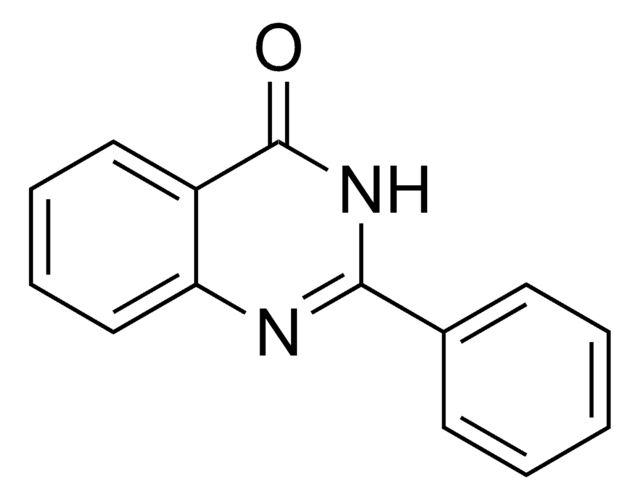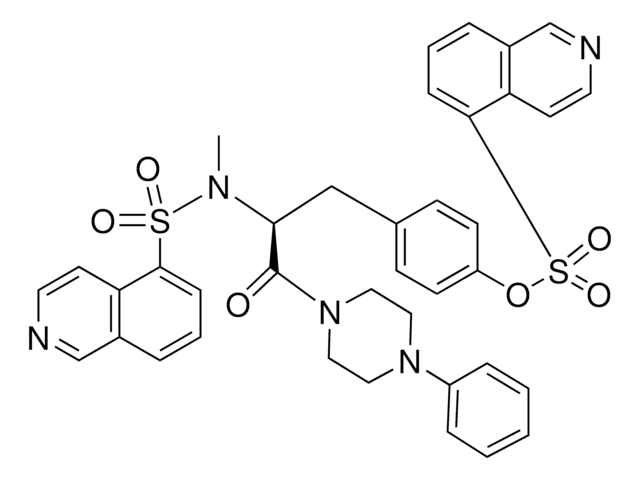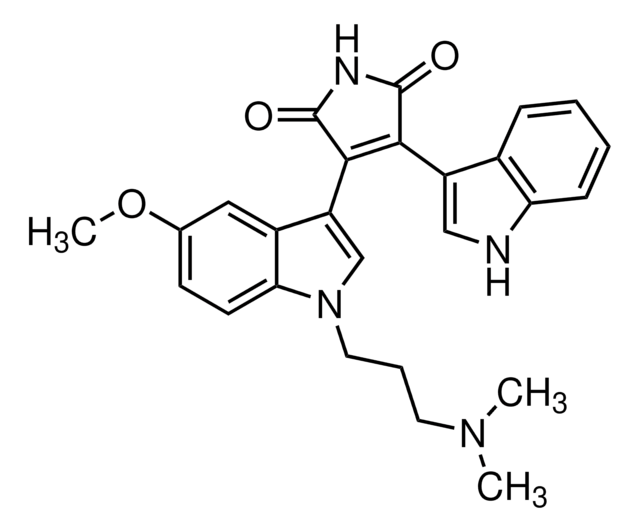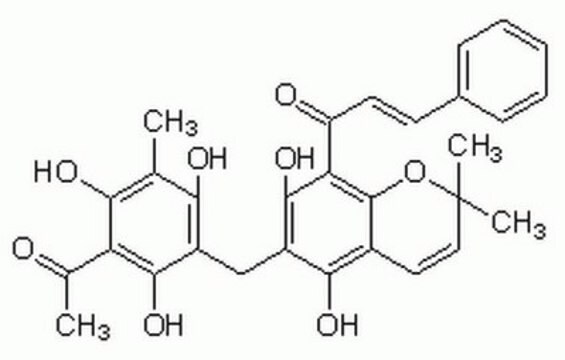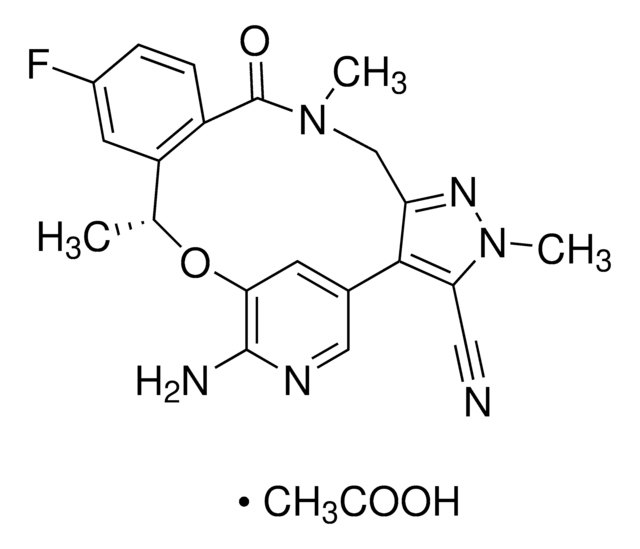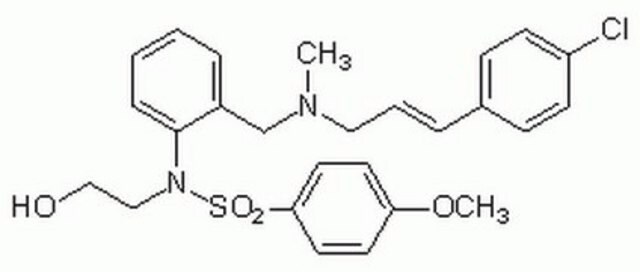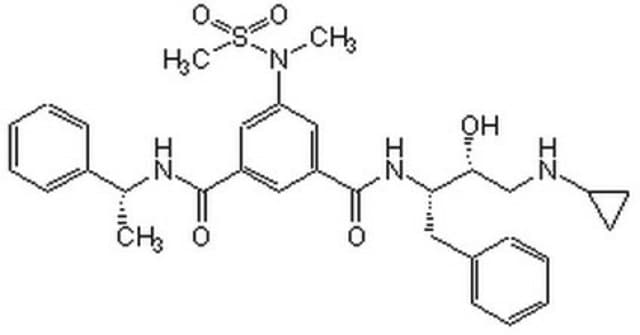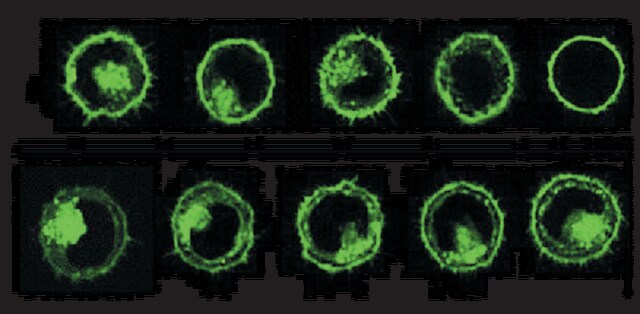428150
Lavendustin A
A cell-permeable, reversible, and substrate competitive inhibitor of EGF receptor tyrosine kinase and p60c-src with little effect on protein kinase A or protein kinase C.
Synonym(s):
Lavendustin A, 5-Amino-[(N-2,5-dihydroxybenzyl)-Nʹ-2-hydroxybenzyl]salicylic Acid, RG14355
About This Item
Recommended Products
Quality Level
Assay
≥95% (HPLC)
form
solid
manufacturer/tradename
Calbiochem®
storage condition
OK to freeze
protect from light
color
off-white
solubility
ethanol: 10 mg/mL
DMSO: soluble
shipped in
ambient
storage temp.
−20°C
InChI
1S/C21H19NO6/c23-16-6-8-19(25)14(9-16)12-22(11-13-3-1-2-4-18(13)24)15-5-7-20(26)17(10-15)21(27)28/h1-10,23-26H,11-12H2,(H,27,28)
InChI key
ULTTYPMRMMDONC-UHFFFAOYSA-N
General description
Biochem/physiol Actions
EGF receptor tyrosine kinase
Warning
Preparation Note
Reconstitution
Other Notes
Rodriguez, J., et al. 1994. Neuropharmacology 33, 1267.
Hsu, C.-Y., et al. 1991. J. Biol. Chem.266, 21105.
O’Dell, T.J., et al. 1991. Nature 353, 558; Onoda, T., et al. 1989. J. Nat. Prod.52, 1252.
Bishop, J.M. 1983. Annu. Rev. Biochem. 52, 307.
Legal Information
Storage Class Code
11 - Combustible Solids
WGK
WGK 3
Flash Point(F)
Not applicable
Flash Point(C)
Not applicable
Certificates of Analysis (COA)
Search for Certificates of Analysis (COA) by entering the products Lot/Batch Number. Lot and Batch Numbers can be found on a product’s label following the words ‘Lot’ or ‘Batch’.
Already Own This Product?
Find documentation for the products that you have recently purchased in the Document Library.
Our team of scientists has experience in all areas of research including Life Science, Material Science, Chemical Synthesis, Chromatography, Analytical and many others.
Contact Technical Service